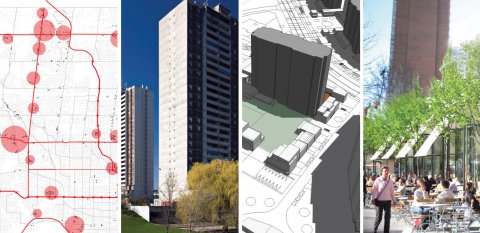Rural Development Knowledge Exchange (KX) – the Role of Philanthropy in Rural Development
10:00am to 11:00am Eastern Time
1 Stone Road West, Conference Room
Dr. Ryan Gibson, a researcher from Saint Mary’s University, Halifax, Nova Scotia, will be presenting (via video) the results of two studies investigating where philanthropy, rural development, and public policy come together in rural Canadian. Ryan will share the research findings showing the:
- substantial financial capital held by community foundations in rural Canada;
- creation and influence of local-based funders;
- re-balancing of the relationships with government; and
- disconnect between philanthropy and other local actors with similar local priorities.
We hope you can join us in person or via webinar at this Rural Development KX event.
To RSVP:
Contact Elin Gwyn: elin.gwyn at ontario.ca or Ramona Cameletti: ramona.cameletti at ontario.ca
Session Description
Rural communities are at a critical turning point in Canada. Rural communities and regions have witnessed decades of dramatic changes: the dismantling of rural institutions, the out-migration of young people and skilled labour, economic restructuring, and the continued investment on infrastructure to bring resources out of rural areas. Rural regions, and consequently their development, have largely been viewed as being dependent on external actors and funds. External actors have largely taken many forms, such as provincial agencies, federal agencies, and the private sector. Philanthropy, through the platform of community foundations, provides an opportunity for rural regions to utilize existing local resources to facilitate sustainability and revitalization. Community foundations, as one type of registered charity, can play a substantial role in rural and regional development.
Philanthropy through community foundations is explored as a mechanism to facilitate and sustain rural development. This discussion shares findings from two research initiatives investigating the intersection of philanthropy, rural development, and public policy in the Canadian context. The findings focus on: the substantial financial capital held by community foundations in rural Canada; the creation and influence of local-based funders; the re-balancing of the relationships with government; and the disconnect between philanthropy and other local actors with similar local priorities. The research findings enhance our current understanding of philanthropy and its potential roles in regional development.
About the Facilitator
Ryan Gibson is an Assistant Professor in the Department of Geography and Environmental Studies at Saint Mary’s University in Halifax, Nova Scotia. Since 2009, he has served on the board of the Canadian Rural Revitalization Foundation/Fondation canadienne pour la revitalisation rurale (www.crrf.ca), serving as President from 2012-2014. CRRF/FCRR is a national non-profit charity focused on enhancing the lives of rural Canadians. Ryan also serves as an elected board member with the Canadian Community Economic Development Network and holds appointments with the Rural Development Institute (Brandon University), the International Centre for Northern Governance and Development (University of Saskatchewan), and Assiniboine Community College.






